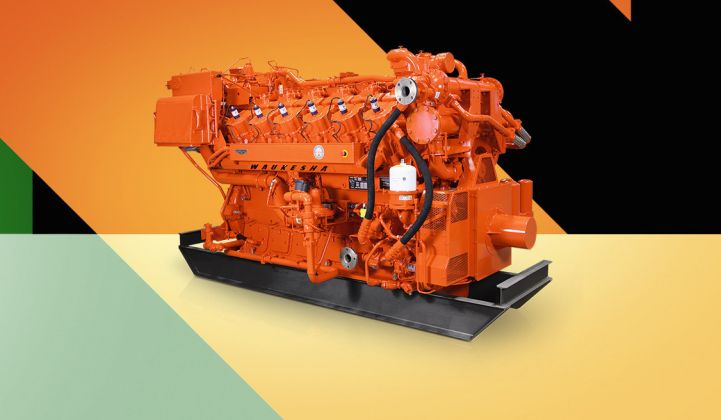General Electric announced Tuesday it has closed a deal to transfer its distributed gas power business to equity investor Advent International.
The new company, encompassing GE’s Jenbacher and Waukesha gas engine brands, also has a new name: Innio. The products will still retain their brand names.
“We are emerging as the youngest energy company in the world, but still have 80 years of experience through the two strong brands we carry in our name, Innio,” said CEO and President Carlos Lange, who formerly held the position of president at GE Distributed Power. “We see ourselves as the key enabler and an integral part of the energy sector transformation that is unfolding.”
GE announced the planned sale in June, part of a larger restructuring to spin off its businesses in areas like transportation and healthcare. It named Distributed Power as a “non-core product line” and said it would go to Advent for $3.25 billion.
As part of the changes, GE said it would home in on three "new" core focuses for the company: renewable energy, power and aviation. The restructuring follows GE’s announcement to target divestiture of $20 billion, and it comes after a series of such reinventions from the company — the last announced in 2017.
At the time of the deal’s announcement, though GE said gas remained key to the energy mix, the company also said it expects 70 percent of capacity additions to come from renewables through 2021.
Lange said Tuesday that the revamped Innio also has a place in the energy transformation. He framed gas as essential to helping increase renewables penetration.
“If we talk about a massive transformation unfolding...that’s surely not an exaggeration,” he said. “Within this massive transformation, I see three megatrends: decarbonization, decentralization and digitalization.”
Innio’s gas engines fit within those trends, according to Lange, because they are distributed and can help renewables flourish by providing backup support. The company has collectively delivered 48,000 engines across the world, enough to power about 100 million homes in Europe.
“By nature, renewables are intermittent; they are volatile,” he said. “And...we are a perfect complement to renewables.”
He also noted that efforts like predictive maintenance through connected applications have improved asset performance management for the company’s products.
The new company will be headquartered in Austria, home of Jenbacher, but will maintain facilities in Canada and the U.S. Waukesha manufacturing, based in Wisconsin, will move to Canada as previously planned. Lange said he expects the company, which has been seeing double-digit percentage growth year-over-year as GE Distributed Power, to move forward with annual growth in the mid to high single-digit range.
Research from Wood Mackenzie Power & Renewables suggests energy storage will beat out peaking plants on cost within a decade. But Innio said its products, ranging from 200 kilowatts to 10 megawatts, provide flexible, distributed support that is important for the future of energy.
Lange said the company’s new name is meant to signal a focus on sustainability.
“We wanted...a name that we felt was simple, was ownable, was compelling, was engaging,” said Lange. “We wanted a name that speaks to what we stand for, which is essentially ingenuity, innovation, inspiration.”
The lightning bolt formed through the center of Innio’s logo, Lange said, shows strength and points to the company’s roots in electricity. How strong this new standalone entity will now actually be remains to be seen.




